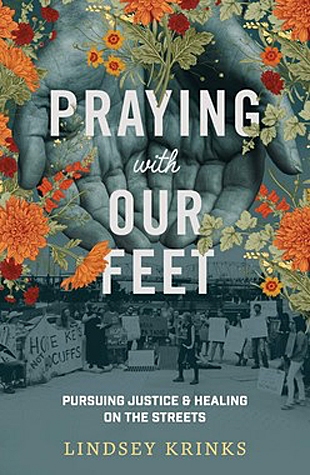“My dad and I, united by our calling to heal and our deep sense of spirituality, disagreed often about theology, white privilege, LGBTQIA+ issues, and a woman’s place in the church. But there were bits of openness in him. And there was love. He was an elder at my former church, a conservative Church of Christ congregation, and was gradually helping to broaden their perspective on what he called the nonessential elements of salvation that so many believed were crucial 'to get into heaven' — like the absence of instruments in worship. Later, my dad would tell me that he didn’t have a vocabulary for the things I was bringing up in our discussions. And how could he? His world was entirely different from mine.
“What would he say if I told him I felt called to chaplaincy, to ordained ministry? And what would my path to ordination even be? The Churches of Christ not only didn’t have a formal process for ordination but they also didn’t recognize women as ministers. If I were a man; if I could pray, preach, and lead hymns; if I could land a preaching job, then voila! I was a minister. Now, my church home was Amos House. We were registered as a church and met weekly. We all shared tasks and roles, but Jeannie, who was ordained by a community church in Atlanta whose members were largely unhoused, was on record as the lead minister. Could Amos House ordain me? Would they?
“At the end of the day, ordination is the process where a church or denomination recognizes and affirms the calling from God upon one of their members to a particular kind of public ministry. While that calling ultimately comes from the Spirit of God, ordination is the act of a community to appoint and send out someone in their name to preach and embody the gospel.
“But I didn’t feel called to be a minister to a physical church. I felt myself being called to people on the streets and in the abandoned, undomesticated spaces in our society. I was called to reimagine what ritual and liturgy could look like in the margins of our society, and I wanted to be able to practice street chaplaincy to the fullest — to serve Communion, baptize, and perform marriages and funerals when those sacraments and services were requested. I was called to a ministry without walls, a ministry that valued the spiritual life of contemplation and prayer as much as it valued an active life of struggling alongside those who struggle. This kind of ministry understood that the 'kin-dom' of God, the beloved community, was not merely an otherworldly destination for our souls, but a horizon — something that was always beyond us but also beneath our very feet. The only kind of conversion I was interested in was converting the black and red ink of Scripture into living, breathing flesh. I wanted to follow in the footsteps of a homeless Galilean who spent his time on the underside of society, who balanced healing and teaching with raising holy hell.”
